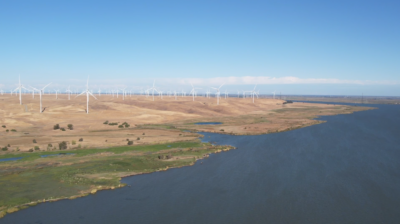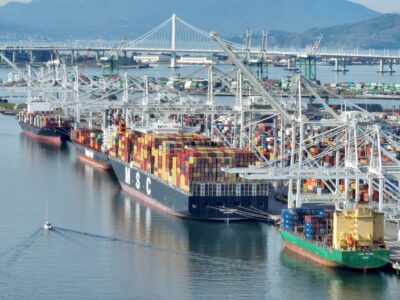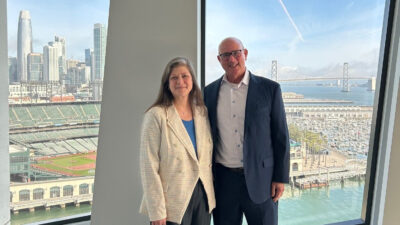Bay Area Council Supports More Shipbuilding in the U.S., Opposes New Fees on Chinese Vessels
The Bay Area Council, a business-supported economic leadership organization composed of more than 350 major employers in the San Francisco/Silicon Valley Bay Area, today (March 27) submitted comments on a proposal being considered by the Office of the U.S. Trade Representative (USTR) to impose steep fees on Chinese-made vessels using U.S. ports. The comments were submitted ahead of a possible Executive Order (EO) that President Trump could sign as early as next week directing various actions to rebuild and revitalize the United States’ shipbuilding industry. The possible EO comes as a private development consortium – California Forever – pursues plans the Council supports for building a massive new shipbuilding and maritime industry hub along the Sacramento Delta in Solano County.
In our comments to the USTR, the Bay Area Council said it supports the Trump Administration’s goal to grow shipbuilding capacity in the United States. We believe that developing that maritime capacity is important for both national security and economic development and can produce new high-value jobs for our economy. The San Francisco Bay Area has a rich heritage of shipbuilding, and the Council is ready to work with the administration and with private partners to maximize this opportunity in the region.
The Council, however, does not support the proposal now being considered by the U.S. Trade Representative’s office to tax Chinese-made vessels when they call at U.S. ports. That taxation would significantly increase the cost of ship-borne imports to the United States, as well as the cost to overseas consumers of U.S. exports carried on Chinese made vessels. Costs to the shipping industry have been estimated in the tens of billions of dollars, adding hundreds of dollars in cost per container. In the case of imports those costs would be passed on to American consumers, and in the case of U.S. exports would make our products less competitive overseas. The added cost for inbound products would be on top of U.S. tariffs that might be imposed on trading partners, magnifying consumer impacts. This includes the cost of intermediary products required by U.S. manufacturers for their own production.
Today the U.S. doesn’t have the ability to replace Chinese with American-made ships, a process that will take many years at best. Rebuilding that capacity should begin now and we welcome the opportunity to work with the administration to bring shipbuilding back to the Bay Area and back to the United States. Until more capacity is developed, however, the taxation of Chinese-made vessels at U.S. ports would be harmful to both U.S. competitiveness and American consumers.





